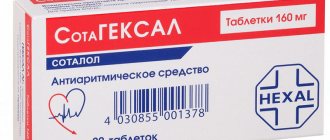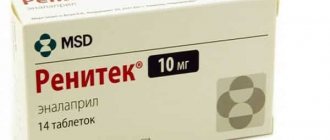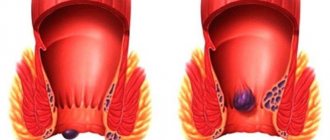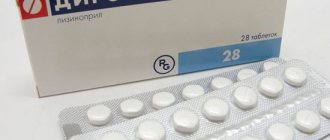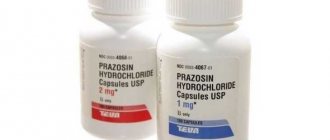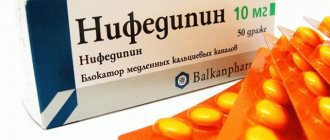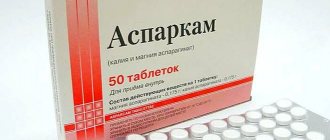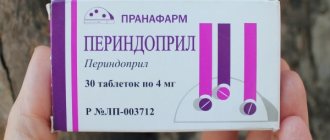Which suppositories are better for hemorrhoids during lactation? This question is often asked by nursing mothers at doctor's appointments. Inflammation of the venous nodes in the rectum is common in pregnant and lactating women. During the birth of a baby, a woman in labor experiences a rush of blood to the pelvis, resulting in the formation of hemorrhoids. This is a whole problem, since a woman cannot be treated with conventional medications during these periods: there is a high risk of harming the child.
A trip to the doctor for such an illness cannot be avoided. It is better to contact the gynecologist who managed the pregnancy. He knows well the characteristics of the mother’s body. Currently, pharmacies sell a huge number of ointments and suppositories for hemorrhoids. Not all of them are suitable for a woman who is breastfeeding. Below is a description of some medications approved for use during lactation.
Composition of the drug
Anuzole contains the following active ingredients: belladonna extract, xeroform - bismuth tribromophenolate, and zinc sulfate.
Belladonna extract increases sphincter tone, while reducing the tone of the intestinal system. This substance quickly relieves pain, has an anticholinergic effect, and suppresses the stimulating effect of acetylcholine.
Thanks to the xeroform, the drug has become an effective antiseptic and dermatotropic substance. This component provides disinfection of the anus, slightly dries and binds the tissue. And zinc sulfate quickly fights inflammation.
The drug "Neo-Anuzol" has the same effect as its analogue - "Anuzol", however, it does not contain belladonna. Therefore, this medicine is allowed to be used during pregnancy and breastfeeding. In addition, the drug is also suitable for children.
The drug in the pharmacy chain
Analogs
Anuzol
Anuzol is the main analogue of Neo-Anuzol. Contains thick belladonna extract, zinc sulfate, xeroform and glycerol. Anuzol suppositories are used in the treatment of hemorrhoids and anal fissures exclusively in adult patients. Contraindicated in acute bleeding, hyperthermia, tachycardia, chronic heart failure, glaucoma, severe arterial hypertension, pregnancy, prostate adenoma, lactation, intestinal obstruction, coronary heart disease, liver and/or renal failure, acute urinary retention, mitral stenosis and in pediatric practice.
Doloproct
Available in the form of rectal suppositories. The active ingredients are fluocortolone and lidocaine. Doloproct is used for the symptomatic treatment of proctitis, anal fissures and inflammation of hemorrhoids. The drug is contraindicated in case of hypersensitivity, pregnancy, specific skin processes (tuberculosis, syphilis), chicken pox, lactation and in children under 18 years of age.
Betiol
The drug Betiol is a rectal suppository containing ichthyol and belladonna extract. Used in the treatment of hemorrhoids and anal fissures. Betiol is prohibited for use in diseases of the cardiovascular system, characterized by an increase in heart rate, intestinal obstruction, glaucoma, pregnancy, acute bleeding, thyrotoxicosis, hyperthermia, urinary retention, prostate adenoma and during breastfeeding. Not used to treat children and adolescents under 18 years of age.
The antihemorrhoidal agent in the form of rectal suppositories contains phenylephrine hydrochloride. The drug is indicated for hemorrhoids (internal and external), itching in the anus and fissures in the anus. The medication is contraindicated for use in cases of hypersensitivity, thromboembolism and granulocytopenia
During breastfeeding and childbearing, as well as for children under 18 years of age, the drug should be used with extreme caution.
Anuzol
Doloproct
Betiol
The antihemorrhoidal drug Relief in the form of rectal suppositories contains phenylephrine hydrochloride. The drug is indicated for hemorrhoids (internal and external), itching in the anus and fissures in the anus. The medication is contraindicated for use in cases of hypersensitivity, thromboembolism and granulocytopenia. During breastfeeding and childbearing, as well as for children under 18 years of age, the drug should be used with extreme caution.
Mechanism of action and pharmacokinetics
The drug has the following medicinal properties:
- Astringent;
- Anti-inflammatory;
- Antimicrobial;
- Drying;
- Healing;
- Antispasmodic;
- Local anesthetic.
Thanks to their active action, suppositories easily relieve pain, relieve inflammation, and help stop minor bleeding in hemorrhoids.
The drug "Neo-Anuzol", unlike its predecessor "Anuzol", does not contain belladonna, making these suppositories safer for pregnant women. The fact is that belladonna has a toxic effect on the fetus developing in the womb.
At the same time, “Anuzol” and “Neo-Anuzol” demonstrate approximately the same effectiveness in the fight against pain and hemorrhoidal inflammation.
Bismuth nitrate present in the drug directly affects the inflammatory exudate, activating the process of coagulation of the proteins contained in it. Due to this action, the surface of the inflamed hemorrhoids receives a protective film, preventing irritation of pain receptors and the penetration of harmful microorganisms into the inflamed tissue. At the same time, the drug constricts the blood vessels, thereby reducing the bleeding of the nodes.
Zinc oxide, present in the preparation when used topically, effectively fights inflammatory manifestations, provides local disinfection, slightly dries and astringents. Such properties provide suppression of the sensitivity of receptors responsible for pain.
The drug also includes tannin, an active anti-inflammatory substance that has a complex astringent effect. The astringent effect is ensured by the initiation of protein precipitation, resulting in the appearance of high-density albuminates. As a result, a film appears on the surface of the tissue, providing reliable protection of nerve endings from irritating factors.
Inflammation is relieved due to a local decrease in the lumen of blood vessels, due to which the swelling of the nodes subsides.
